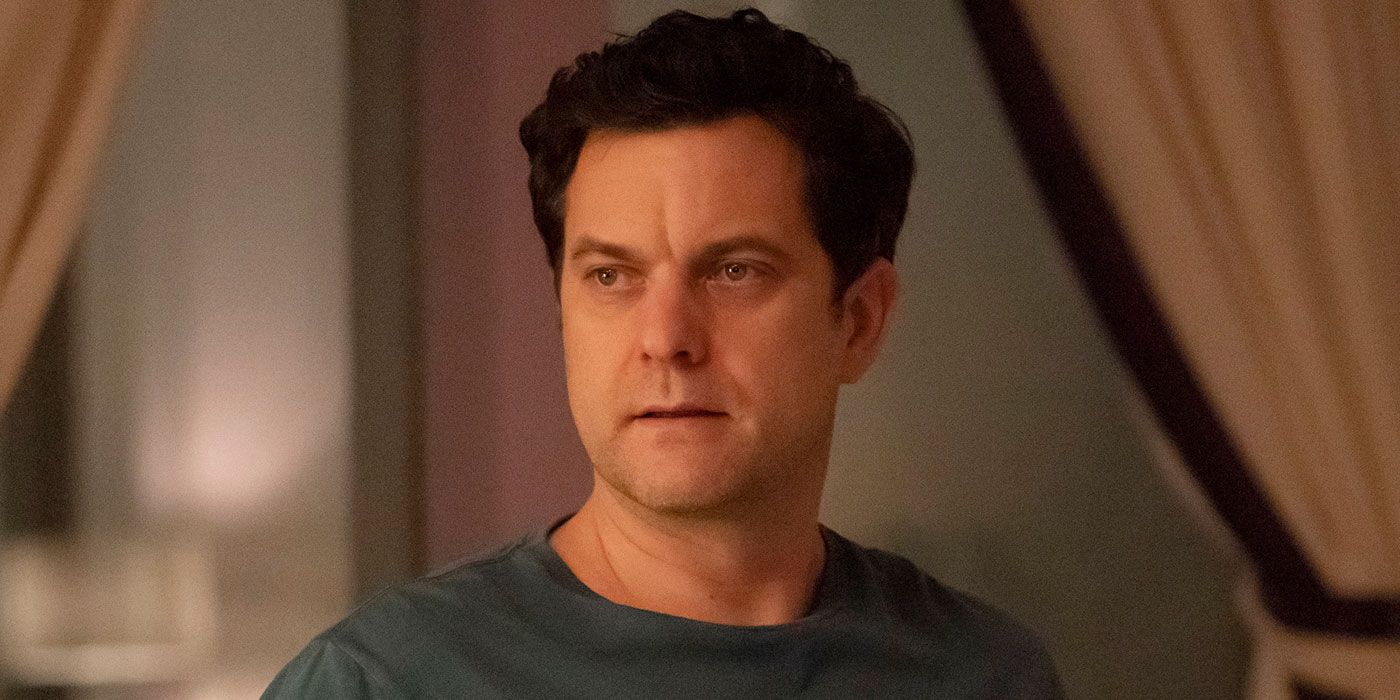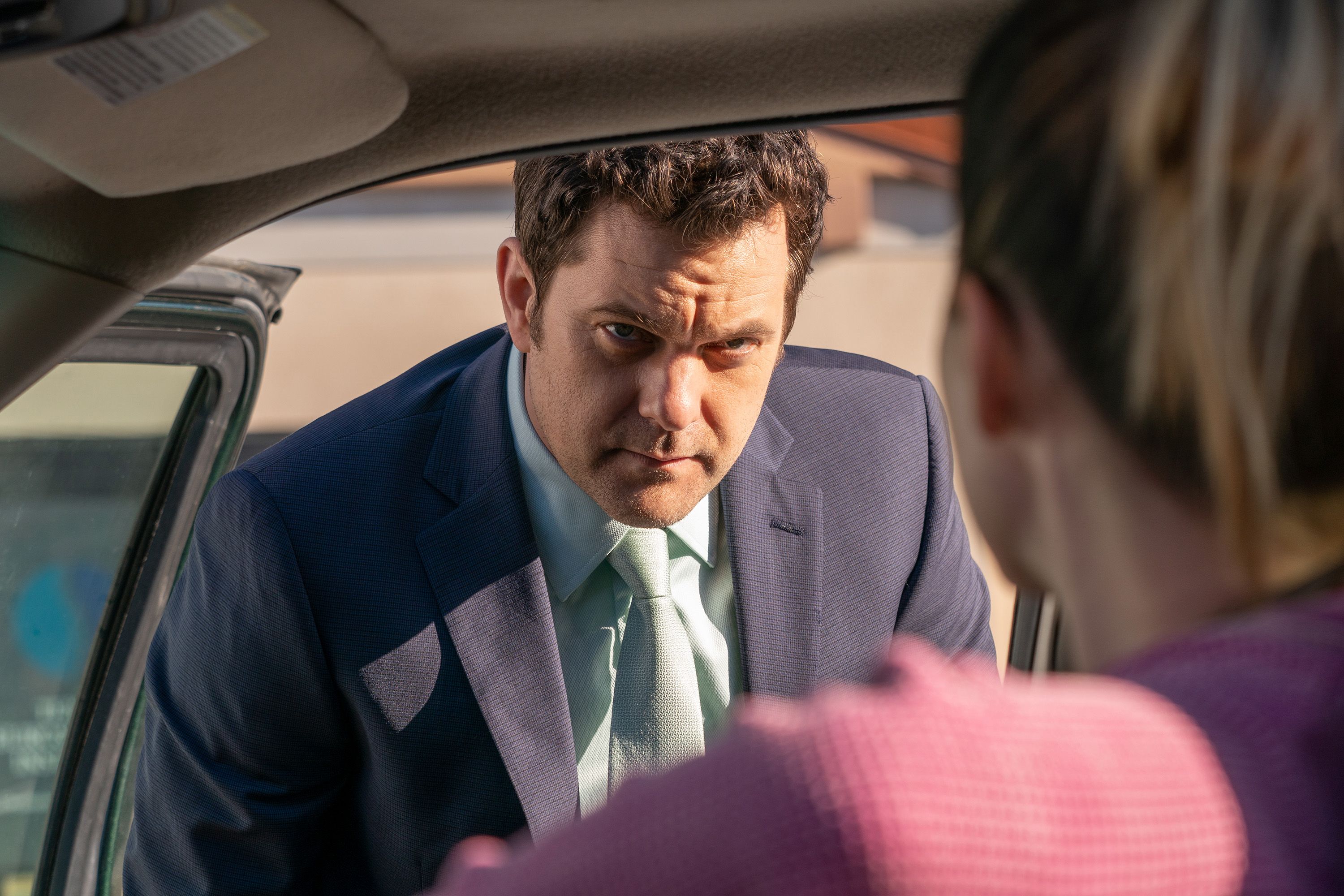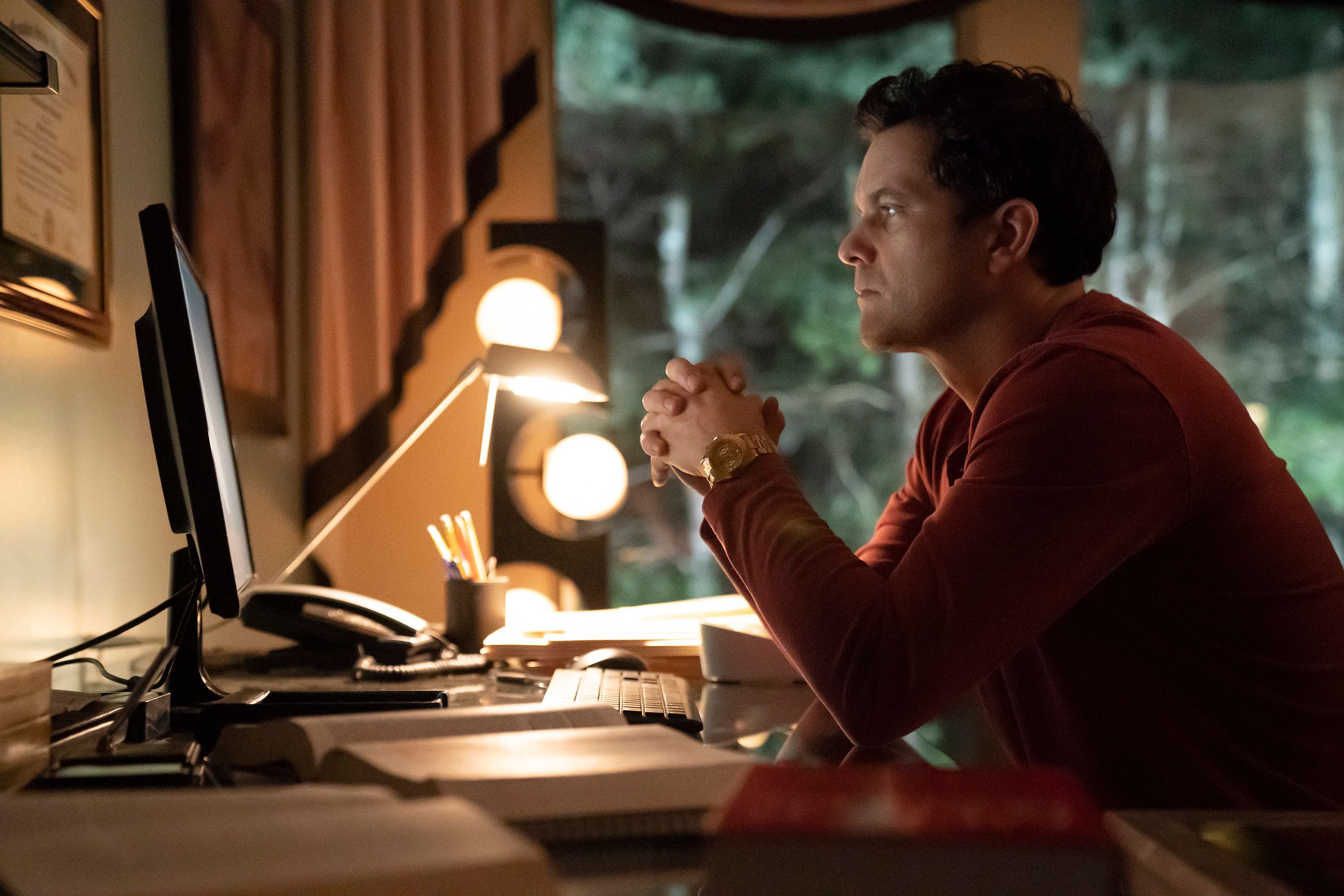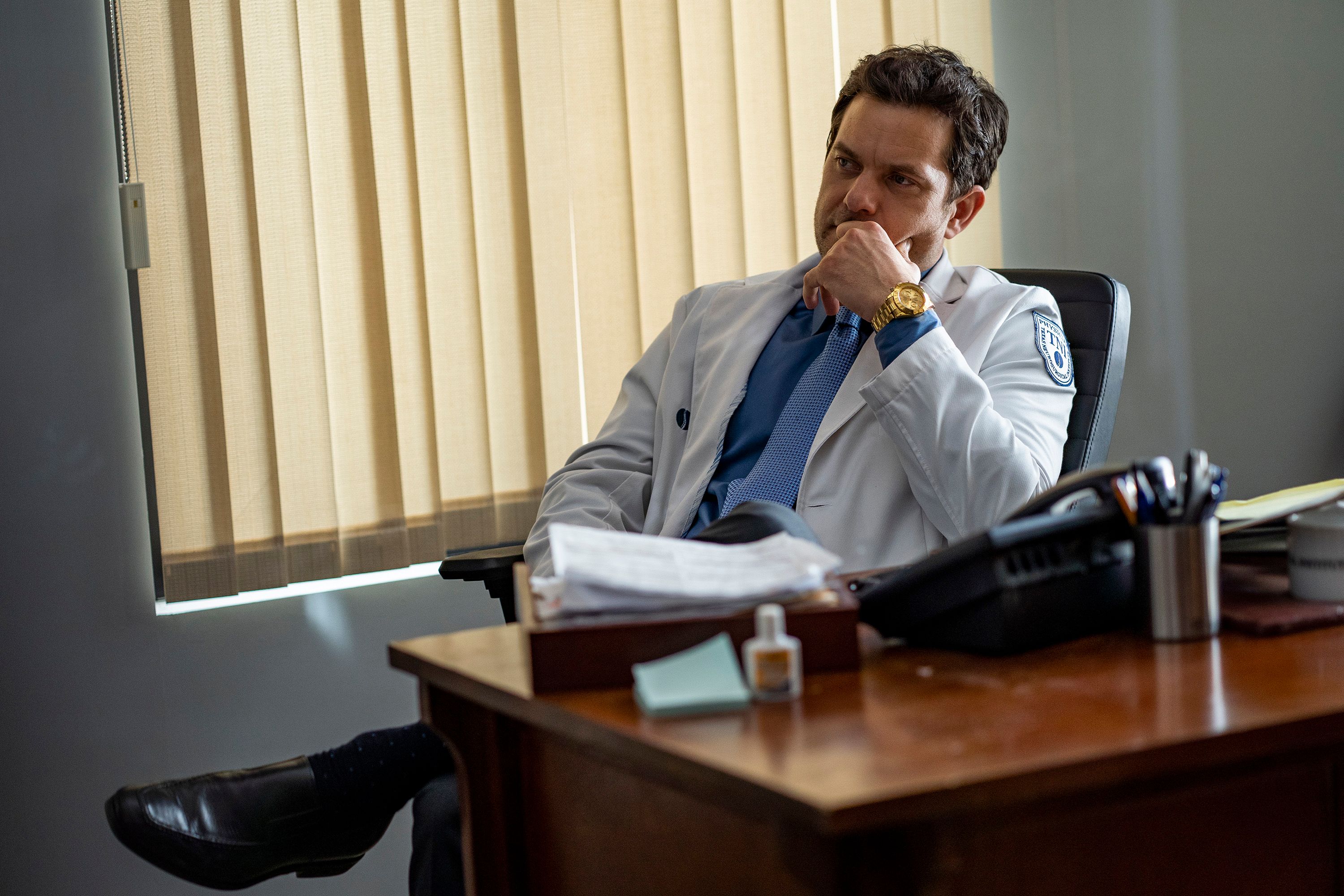Dr. Death is not a show that you should consider watching right before your next trip to the doctor's office. The Peacock limited series, based on the Wondery podcast, covers the true story of Dr. Christopher Duntsch (played by Joshua Jackson), whose surgical career ruined the lives of numerous people — patients who trusted that he would help them get better. Duntsch was eventually stopped, thanks in no small part to the two doctors who worked to expose him (played by Christian Slater and Alec Baldwin). But the path to that point was a long one made difficult by the systems put in place to protect doctors and the institutions they work for, not the patients.
That was a big focus of Collider's one-on-one interview with Joshua Jackson, who spoke openly about the differences between the American and Canadian health care systems and why it's an important step for shows like Dr. Death to include an all-female directing team (Maggie Kiley, Jennifer Morrison, and So Yong Kim directed the eight episodes). But more importantly, he explained how he got inside the head of a man who it would be all-too-easy to write off as pure evil.
Collider: And I wanted to start off just by kind of asking, there's so much of the character that you're playing, especially given that it's based on a real person, and I was wondering, what was key for you in terms of unlocking how to approach it?
JOSHUA JACKSON: Well, the first key and probably the most difficult hurdle for me to get over was to not judge him. When I listened to the podcast, when I got into the conversation with Patrick Macmanus, when he gave me all the research material, I so wanted to make him evil. My instinct was that the only way, that this man has to be evil, because there has to be a reason why all of this spectacularly bad stuff happened and the simplest and easiest answers he's evil. Right? He's a psychopath. He's doing it on purpose. I wanted to make it easy for myself. And that's frankly what I found so compelling about the character is that it's not easy. He thinks he's the hero of this story. Right? So the outcomes are totally evil, and it is unconscionable that this man was allowed to continue to create this much chaos and pain in people's lives. But from the inside, he sees himself as the victim of circumstance. And that disconnect from reality, I found really compelling.
Yeah, I mean, what strikes me about it so much is that, you can see that, and you can also see why we need systems that clearly weren't working in this case.
JACKSON: Well, actually, I think it's even one step scarier than that. I think the systems were working. The systems were telling us where their actual values lay. Right? The value of the institutions was placed above the value of the patients. The value of the legal system, right, of tort reform in the state of Texas was placed above the safety and remuneration of the patients and victims. The value of the doctors, right?
Christopher Duntsch was allowed to keep on moving because he himself represented value in the specialty that he was in, in frankly, the face that he presented, he was valuable to these institutions. So what's scarier to me is, it's not that the systems broke down, it's that they actually operated mostly as they're supposed to. And because while we, as patients were told, well, the patient comes first.
But the actuality is, is that these hospitals will protect themselves. The medical boards will protect themselves. The legal system will protect themselves. So for those of us at just the human level who are interacting with them, we have to realize that we don't just need the systems that have been created to operate better. We need to actually reform them. Because whether it be a hospital network, whether it be a medical board, whether it be the legal system, it doesn't actually place the little guy first. Right? It doesn't place the patient or the victim at the front, it protects the institution first and then somewhere down the line comes the patient.
So my follow-up question to that is how has the show changed your relationship to going to the doctor?
JACKSON: Well, yeah, it gives you a healthy skepticism. You know, I like to believe that the doctors that I interact with have my best interest at heart. And thankfully, knock on wood, I've never had some spectacularly horrific outcome, like Christopher Duntsch, but I grew up in Canada and I'm Canadian. So the Canadian system is very different than the American system. And the American system, I often find myself having to remind myself that in the American system that the money comes first before the care. Right? In the Canadian system, you go for care first, and then you pay a couple of times a year into the system. It's just a very different way of thinking about interacting.
In America, health is a service. In Canada, health is a right. So I have to constantly remind myself here that no matter how well-intentioned or well-meaning any doctor or any hospital that I'm interacting with, ultimately they're selling me something. And I need to think of it, not as a patient, but as a customer, which is a very difficult thing because you're in an extremely vulnerable place anytime you're interacting with the medical system.
That's something that I think the show captures really well, especially when it comes to bringing you into the worlds of the patient.
JACKSON: Yeah. I think Patrick...he chose a very difficult path of how to tell this story, particularly by centering Duntsch. I mean Duntsch could very easily just have been the black hat bad guy. Right? And by bringing him into the center portion of the story, you essentially are asking the audience to have compassion or empathy for him, to understand him. And by doing that, then you also bring in his patients. And now you have to have empathy for the people who are the victims of your central character. It's a complicated plank that he tried to walk.
In terms of the production, were you shooting at all chronologically or was it...were you kind of bouncing between time periods?
JACKSON: We were bouncing between time periods a lot. So we shot the episodes in three different bricks. But even inside it, there was some times where sequences would line up as chronological, but the timeline was a lot to keep your head around. Particularly for Duntsch, because it goes over such a long period of time. So we were bouncing around quite a lot.
And what did it mean to you to have an all female directing team?
JACKSON: I mean, I think, leaving aside our show, it means that finally the industry as a whole is starting to redress some of the failures of imagination that have led us into a predominantly male, predominantly white-dominated creative industry. So what it meant for the particulars of our show is that we had three excellent directors. Right? All three of them are fantastic each in their own right. Each very different. Jennifer Morrison, I've actually known for a very long time. So it was lovely to get to know her again as a director and just see how she has grown and blossomed and thrown herself into that role. But the meta statement of "my gosh, a show can be shot by three women, who knew" ... we were 75 years past the place of thinking "can three men shoot a show all by themselves?" So I think we're getting towards a better place.
And you know, the hope and dream is that the generation that comes up behind me, it seems inconsequential whether it's all women, all men or a blend of something in the both. But I think, it is good. I'm happy to be a part of a show that is redressing the failure of creative imagination that has placed a female director as some other thing, rather than a director, meaning a male director. That it needs to be noted that like, well, you can only give these ladies so many slots.
Yeah, hopefully even just asking that question today almost feels a little bit dated.
JACKSON: Well, it's not. Right? We're certainly not there yet. I think Ava is the first person to have a completely female directed show on Queen Sugar. And that was a revolutionary act. I mean, truly a revolutionary act. And created all sorts of discussion and blowback inside the industry. And that's only four years ago. Right? So, we've taken steps and that's good, but I think it's a totally valid thing to ask because we're not there yet. We're moving in the right direction. Right? From a creative standpoint, what is so unfortunate about the fact that you need to ask that question, and it's a totally valid question is, one would have hoped that we would have always understood that the more diverse and the better quality voices that we have in telling stories, the better the industry is as a whole. Right?
White men also have stories to tell. We've told lots and lots and lots of our stories. Plenty, plenty, plenty, plenty. It is good and healthy and natural and necessary for us to have other people and other perspectives, than just white men. And I, as an actor, want to have the ability to work for the whole smorgasbord of humanity as my directors, as my costars, as my writers, because it makes the stories that we're telling more compelling, not less.
So really for us, we're in a place where we're actually conscious of it, but the industry still has time to go. Because the reality is, is that we're a training craft business. So it has to be taught through generations. You can't just...it doesn't come out wholly formed. Right? So the training craft is being downloaded to a new generation of people whose faces look much more diverse than just a bunch of me-s. And that's good, but we're not there yet. So I think that's a totally valid question and I'm happy to be a part of now several shows that have been part of moving in that direction, but the feet needed to be held to the fire so that we don't slide back.
Dr. Death is available now on Peacock.




